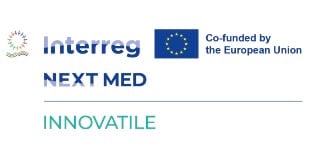 The European INNOVATILE project, funded by the European Union under the Interreg NEXT MED Programme, which began on August 26, is advancing a new, more sustainable technology for manufacturing porcelain tiles, aiming to significantly reduce the industry’s environmental impact. The project’s total budget is €2,800,575.65, of which €2,492,512.33 is funded by the European Union, a contribution that represents 89% of the project’s total cost.
The European INNOVATILE project, funded by the European Union under the Interreg NEXT MED Programme, which began on August 26, is advancing a new, more sustainable technology for manufacturing porcelain tiles, aiming to significantly reduce the industry’s environmental impact. The project’s total budget is €2,800,575.65, of which €2,492,512.33 is funded by the European Union, a contribution that represents 89% of the project’s total cost.
The project seeks to address the energy and resource-intensive nature of ceramic tile production by scaling up an innovative semi-wet granulation process. The project’s kick-off meeting is scheduled for November 4.
This new technology is designed to drastically cut energy, water, and raw material consumption. Key expected outcomes include:
- Energy and Emissions: A 30-35% reduction in energy demand and greenhouse gas emissions.
- Resource Efficiency: A 10-20% reduction in the consumption of raw materials and water.
- Waste Integration: The ability to incorporate secondary raw materials (SRMs), such as waste and by-products, into the manufacturing process.
- Raw Material Replacement: The replacement of feldspar, a critical raw material in the EU, with other materials.
The project’s technology is a semi-wet powder preparation method for porcelain tile manufacturing, building on previous experience with wall tiles. Following validation, a pilot implementation will be conducted with an end user, with plans for replication in another country. An environmental analysis will compare this new process with traditional manufacturing methods.
The project will also create the HypocarbonTileTech network, a platform to foster collaboration on decarbonization, renewable energy, and waste management among all stakeholders in the ceramic tile value chain. This network aims to raise awareness among a variety of audiences, from students and researchers to industry professionals. Furthermore, policy documents will be developed and shared with public authorities to ensure the project’s long-term impact.
The consortium is composed of three research institutions and four organizations from key ceramic tile-producing regions:
- Spain: Instituto Universitario de Tecnología Cerámica. Universitat Jaume I de Castellón (Project coordinator)
- Türkiye: Kaleseramik, Çanakkale Kalebodur Seramik San. A.Ş. and Çanakkale Teknoloji Geliştirme Bölgesi A.Ş.
- Italy: Università degli Studi di Napoli Federico II
- Cyprus: ATLANTIS Environment and Innovation Ltd
- Tunisia: National Engineering School of Gafsa
- Egypt: Egyptian Center for Innovation & Technology Development
This partnership represents four of the world’s top ten largest tile-producing countries and will enable the project to engage with major tile manufacturers globally. The developed inventory of secondary raw materials will also benefit other industries by providing information on locally available SRMs.
The contents of this press release are the sole responsibility of Universitat Jaume I and can under no circumstances be regarded as reflecting the position of the European Union or the Programme management structures.
Contact:
- Charalambos Panayiotou, Atlantis Environment & Innovation LTD,
- email: [email protected],
- tel.: +35799650050.


